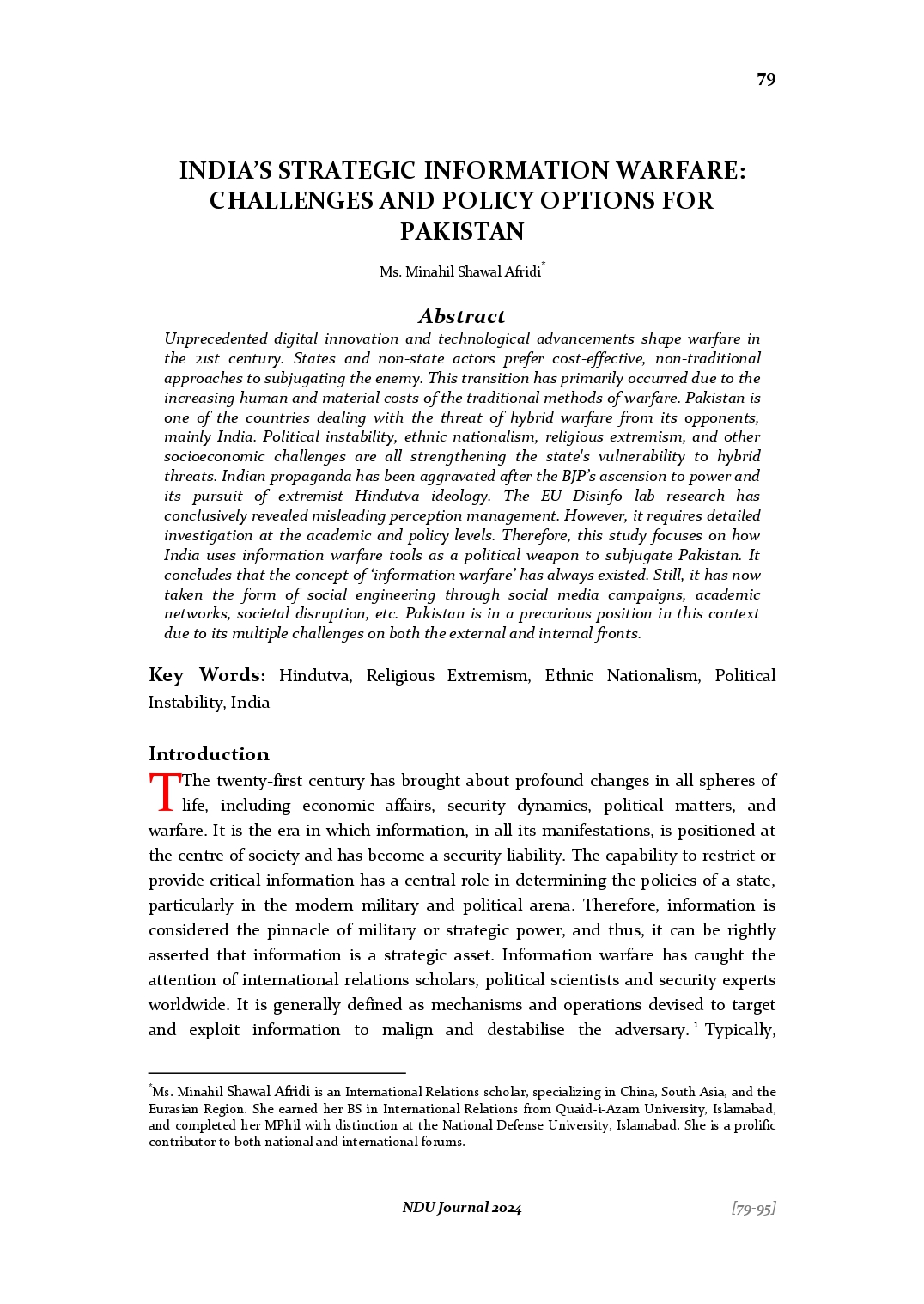INDIA’S STRATEGIC INFORMATION WARFARE: CHALLENGES AND POLICY OPTIONS FOR PAKISTAN
Keywords:
Hindutva, Religious Extremism, Ethnic Nationalism, Political Instability, IndiaAbstract
Unprecedented digital innovation and technological advancements shape warfare in the 21st century. States and non-state actors prefer cost-effective, non-traditional approaches to subjugating the enemy. This transition has primarily occurred due to the
increasing human and material costs of the traditional methods of warfare. Pakistan is one of the countries dealing with the threat of hybrid warfare from its opponents, mainly India. Political instability, ethnic nationalism, religious extremism, and other socioeconomic challenges are all strengthening the state's vulnerability to hybrid threats. Indian propaganda has been aggravated after the BJP’s ascension to power and its pursuit of extremist Hindutva ideology. The EU Disinfo lab research has conclusively revealed misleading perception management. However, it requires detailed investigation at the academic and policy levels. Therefore, this study focuses on how India uses information warfare tools as a political weapon to subjugate Pakistan. It concludes that the concept of ‘information warfare’ has always existed. Still, it has now taken the form of social engineering through social media campaigns, academic networks, societal disruption, etc. Pakistan is in a precarious position in this context due to its multiple challenges on both the external and internal fronts.

Downloads
Published
How to Cite
Issue
Section
License

This work is licensed under a Creative Commons Attribution-NonCommercial 4.0 International License.








